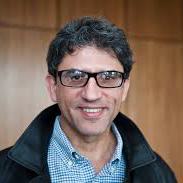Over the last years, several works have explored the application of deep learning algorithms to determine the large-scale signal fading (also referred to as ``path loss'') between transmitter and receiver pairs in urban communication networks. The central idea is to replace costly measurement campaigns, inaccurate statistical models or computationally expensive ray-tracing simulations by machine learning models which, once trained, produce accurate predictions almost instantly. Although the topic has attracted attention from many researchers, there are few open benchmark datasets and codebases that would allow everyone to test and compare the developed methods and algorithms. We take a step towards filling this gap by releasing a publicly available dataset of simulated path loss radio maps together with realistic city maps from real-world locations and aerial images from open datasources. Initial experiments regarding model architectures, input feature design and estimation of radio maps from aerial images are presented and the code is made available.



